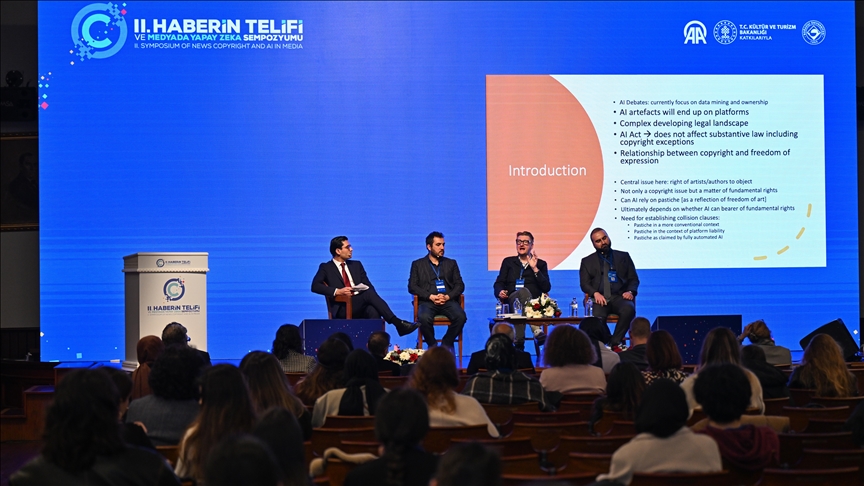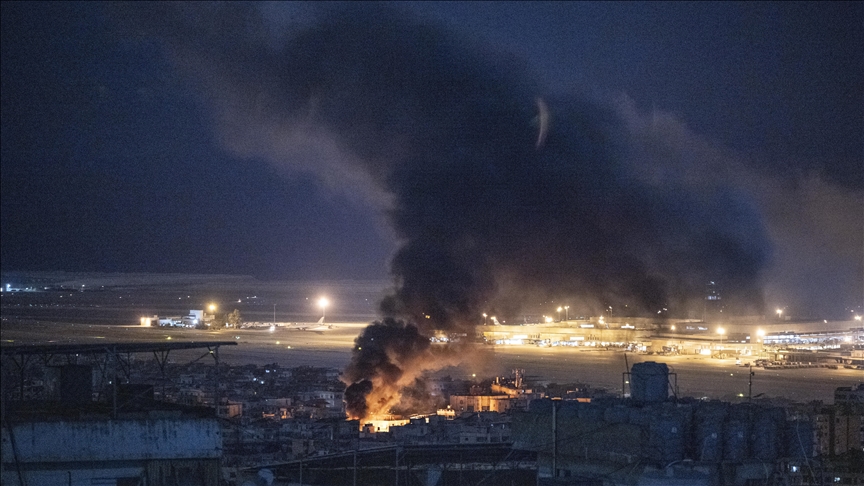Experts at Istanbul symposium call for legislative reforms to protect journalism in digital era
ISTANBUL
Experts called Tuesday for urgent legislative reforms to safeguard journalism in the digital era as part of the 2nd Symposium on News Copyright and Artificial Intelligence in Media at Bogazici University in Istanbul.
The two-day symposium was organized by Anadolu and Bogazici University with the backing of the Turkish Ministry of Culture and Tourism.
The roundtable meeting gathered experts from various countries, including academics, lawyers and copyright specialists.
Following the meeting, the symposium concluded with a final declaration emphasizing the need for legislative reforms to address challenges posed by digitization in the media sector.
“A legislative framework is required to address the challenges posed by digitization in the media sector, ensuring robust protection for press publishers, prioritizing the integrity of journalism against the proliferation of synthetic news, aiming to achieve a well-functioning marketplace, leading to a positive impact on the production and availability of news and on media pluralism, to the ultimate benefit of consumers,” according to the declaration.
It added that a system should be “simple, straightforward and enforceable.”
“As Türkiye is following the EU acquis, it should recognize the EU-like model of neighboring rights for press publishers. However, to prevent digital platforms from attempting to circumvent the law, a clause addressing imbalanced bargaining power should also be included in the law,” it said.
Crisis of journalism
Speaking at the meeting, lawyer and journalist Rumeysa Kalin Karabulut addressed what she called a “crisis of journalism” as news publishers grapple with the economic fallout of the digital shift.
“Today, the main medium of news is digital media,” Karabulut said. “Press publishers used to get the return on their investments from physical product sales such as magazines, newspapers and advertisements in these products.
“But as news digitalized, physical product sales have nearly come to an end and the arena of advertising has also shifted to digital media,” she noted.
Karabulut highlighted a startling statistic, noting that 90% to 95% of advertising revenue obtained from news on digital media goes to digital platforms, “gatekeepers.”
“This has led to what might be described as a global journalism crisis,” she said.
“Digital platforms, as much as they have changed the culture and economy of newspapers, do not produce (news) content themselves. That means the rationale of ‘new business models destroying old ones and taking their place in the free market’ also does not apply,” the lawyer added.
Some media outlets searched for crisis management and turned to their nation states, she noted. “To address these issues, the EU introduced the Directive on Copyright and Related Rights in the Digital Single Market, or DSM Directive number 2019/790, which granted exclusive rights to press publishers,” she said.
“EU states began adopting this directive into their domestic laws, and other similar regulations have been seen in Canada and Australia,” she noted.
The meeting raised critical questions, including addressing journalism’s crisis, the feasibility of a hybrid solution combining copyright and competition approaches, its potential implementation in Türkiye, and the significance of media-produced content for AI development.
Anadolu Agency website contains only a portion of the news stories offered to subscribers in the AA News Broadcasting System (HAS), and in summarized form. Please contact us for subscription options.




